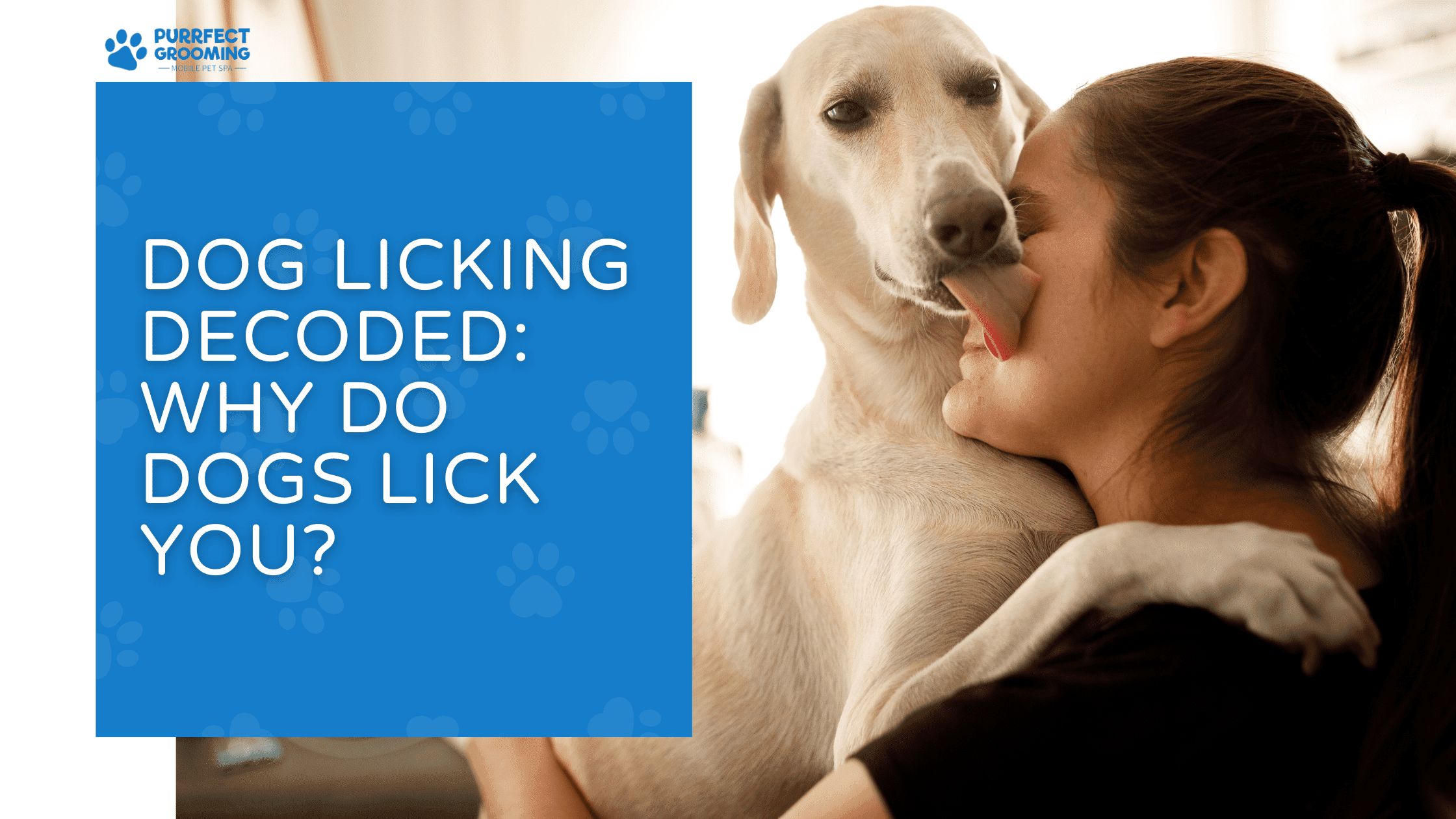Dog Licking Decoded: Why Do Dogs Lick You?
Dogs are known for their affectionate behavior, and licking is one of their most common ways of expressing themselves. Ever wondered, “Why do dogs lick you?” or perhaps thought, “Why does my dog lick me so much?” This comprehensive guide dives into the science, emotions, and behaviors behind dog licking. Let’s decode what it means when a dog licks you and understand their world a little better.
Why Do Dogs Lick You?
Dogs lick for many reasons, and while affection might be the most popular belief, there’s more to it than meets the eye. From evolutionary instincts to emotional bonds, licking is a multifaceted behavior. Let’s explore the reasons behind this curious habit.
The Science Behind Dog Licking
Evolutionary Roots
Licking has deep evolutionary roots. Puppies lick their mothers to stimulate milk production and for grooming. As they grow, licking becomes a natural part of their communication.
Canine Communication Through Licking
Dogs use licking as a way to communicate. A lick can mean submission, excitement, or even a way to appease another dog or human.
Emotional Reasons Why Dogs Lick You
Showing Affection
When your dog licks you, it’s often their way of saying, “I love you.” This behavior mirrors how they interact with their pack members.
Seeking Comfort or Security
Licking can be self-soothing. When a dog licks you, it may be their way of finding reassurance, especially in stressful situations.
Practical Reasons Why Dogs Lick
Exploring the Environment
Dogs experience the world through their senses. Licking is a way for them to taste and understand their surroundings.
Seeking Attention
Licking can be a bid for your attention. If you react positively, your dog might use licking to engage with you more often.
Tasting Something They Like
Have you noticed dogs licking salty skin or food crumbs? Sometimes, they’re just drawn to the taste!
Why Does My Dog Lick Me So Much?
Anxiety and Stress Relief
Dogs may lick excessively to cope with anxiety. This repetitive behavior helps them calm down.
Learned Behavior from Reinforcement
If you’ve rewarded your dog’s licking in the past—like laughing, petting, or giving treats—they’ve learned it’s a good way to get your attention.
What Does It Mean When a Dog Licks You?
Health Check—Are They Trying to Tell You Something?
Dogs have an incredible sense of smell. Persistent licking in one area could mean they’re detecting something unusual, like a wound or illness.
The Pros and Cons of Dog Licking
Benefits of Dog Licking
- Strengthens the bond between you and your dog
- Helps dogs express emotions
- May even have a calming effect for both parties
Potential Risks of Excessive Licking
- Over-licking can cause irritation or sores on their tongue.
- Some germs and bacteria can transfer through saliva.
You May Also Like : Pros & Cons of Hiring a Mobile Dog Groomer
How to Manage or Redirect Dog Licking
When Licking Becomes Problematic
If licking becomes obsessive or disruptive, it might indicate stress or a behavioral issue.
Training Tips to Redirect Excessive Licking
- Distract them with toys or chews.
- Use positive reinforcement to reward non-licking behaviors.
- Consult a vet or trainer if licking persists.
Fun Facts About Dog Licking
Did You Know? Unique Licking Behaviors in Different Breeds
- Some breeds, like Labradors, are known for excessive licking.
- Huskies may lick less due to their independent nature.
Conclusion
Licking is a natural and meaningful behavior for dogs. Whether they’re showing affection, exploring their environment, or seeking comfort, understanding why dogs lick you helps strengthen your bond. Embrace the quirks of your furry friend while keeping their health and behavior in check.
FAQs
1. Why do dogs lick humans’ faces?
Dogs lick faces to show affection and explore scents. It’s also a sign of submission or bonding.
2. Can dog licking spread germs?
Yes, while most are harmless, some bacteria in dog saliva can cause minor health issues in humans.
3. How do I stop my dog from licking excessively?
Distract them with toys, provide mental stimulation, and avoid reinforcing the licking behavior.
4. Is licking always a sign of affection?
Not always. It can also indicate stress, boredom, or curiosity.
5. Are there health concerns related to dog licking?
Over-licking can cause sores or infections in dogs, and excessive licking of wounds might delay healing.
